If you’ve ever dreamed of building your own home cinema, then at some point you’re going to need to buy a projector. Nothing says home cinema like a massive 100-inch or larger picture, so the question is: which projector should you buy?
The answer will largely depend on two factors: space and budget. If you want the complete home cinema experience, you really need a dedicated room where you can fully control the ambient light. If you’ve got that, you’re halfway there.
As for budget, the higher-end of the projector market is dominated by Sony and JVC, but when it comes to the more affordable models, one projector manufacturer sits above all the others – Epson.
- Check out the best projectors available today
Why is Epson the most popular home cinema projector manufacturer? There are two reasons, and the first is economies of scale. As the world’s largest projector manufacturer, Epson can offer feature-packed models at very affordable prices.
The other reason is that Epson uses LCD panels in its projectors, and this technology is more flexible in terms of installation when compared with DLP models from competitors such as BenQ and Optoma.
If you’ve caught the home cinema bug, you may already have seen one of Epson’s projectors and thought, ‘should I buy it?’ In this guide you'll find an introduction to the Epson brand, an overview of what makes it stand out from the competition, as well as the latest deals on Epson projectors – along with all our latest Epson reviews.
Epson projectors: an overview
Epson hardly needs an introduction, and the Japanese giant manufacturers every kind of projector, from the data grade units you often see in classrooms to more sophisticated models aimed squarely at the home cinema market.
This latter category offers a wide selection of projectors, ranging from basic 1080p beamers to higher-end versions that support 4K and HDR. What they all have in common is the company’s 3LCD technology, which uses three LCD panels to produce the images.
Epson is the biggest manufacturer to employ this approach, with main competitors Optoma and BenQ both using DLP instead. The advantage of three LCD panels – one each for the three primary colours of red, green and blue – is that there’s no need for a colour wheel.
As a result LCD projectors don’t suffer from the colour fringing (rainbow) artefacts that plague single-chip DLP projectors. Conversely an LCD projector isn’t quite as sharp as its DLP counterpart because the three panels need to be aligned.
The biggest advantage LCD has over DLP is flexibility when it comes to installation. Epson’s projectors have full lens controls with focus, shift and zoom. The higher end models even include motorised controls and offer lens memories for different aspect ratios.
In terms of limitations, the technology has a slower response time compared to DLP – much like LCD TVs – and thus the motion handling isn’t as good. In addition, the light path in an LCD projector isn’t sealed, so it can occasionally suffer from those dreaded dust blobs.
As with all projectors in the sub-$5,000 / sub-£5,000 price bracket, Epson’s 4K HDR models are not native 4K. They use 1080p LCD panels and then employ pixel shifting to increase the perceived resolution with a 4K signal. Epson euphemistically refers to this as 4K PRO-UHD, but it’s more commonly known as ‘wobulation’.
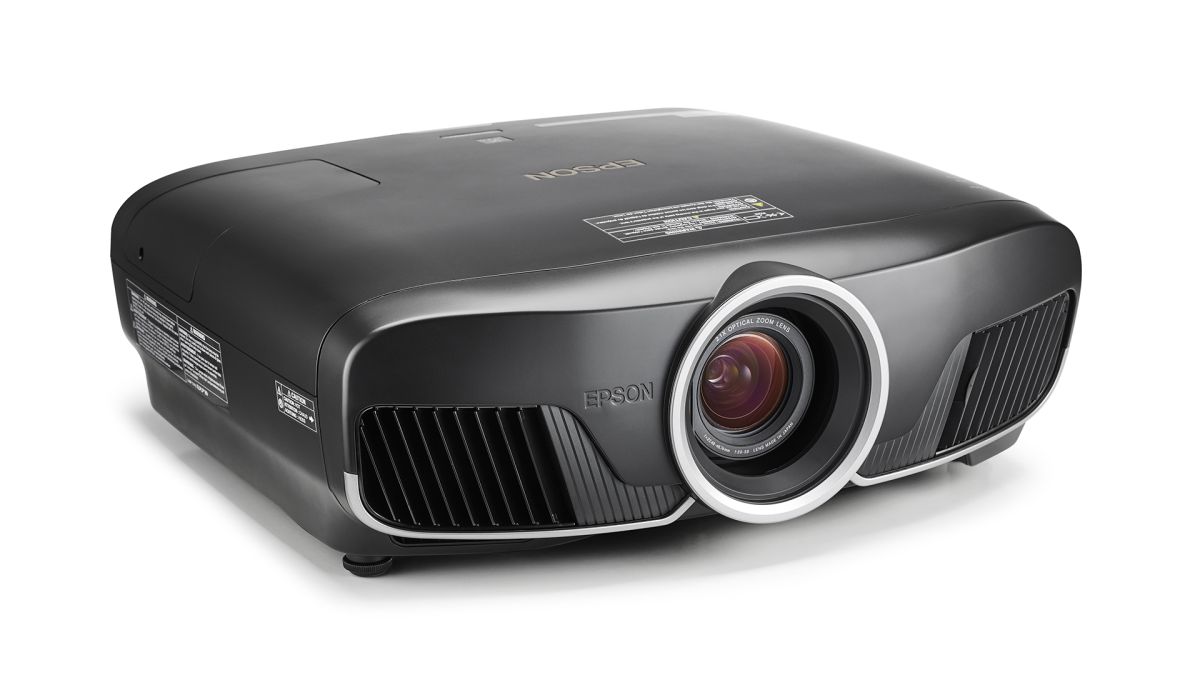
Should I buy an Epson projector?
If you’re planning a home cinema, Epson has you covered regardless of your requirements or budget. There are competitively-priced 1080p projectors for those with limited funds, and very bright models for rooms with white walls or ambient light.
The higher-end home cinema beamers add support for 4K and HDR, along with frame interpolation for improved motion, and a dynamic iris for better contrast ratios. As already mentioned, there are also extensive lens controls and memory features.
In terms of performance these projectors don’t disappoint either, and while not native 4K they are still capable of big, bright and detailed images that are uncompromisingly cinematic. The use of the three LCD panels also allows Epson’s projectors to reproduce 100% of the Rec.709 and DCI-P3 colour gamuts with impressive accuracy.
The build quality is often excellent, with the more expensive models including a backlit remote control and motorised lens cover to keep out dust. The flagship model even has a wireless option to avoid long HDMI cable runs.
Aside from the inherent limitations of LCD technology, Epson’s range of home cinema projectors deliver exceptional performance, and the top-tier models offer specs that are second to none, with features not found on projectors costing twice as much.
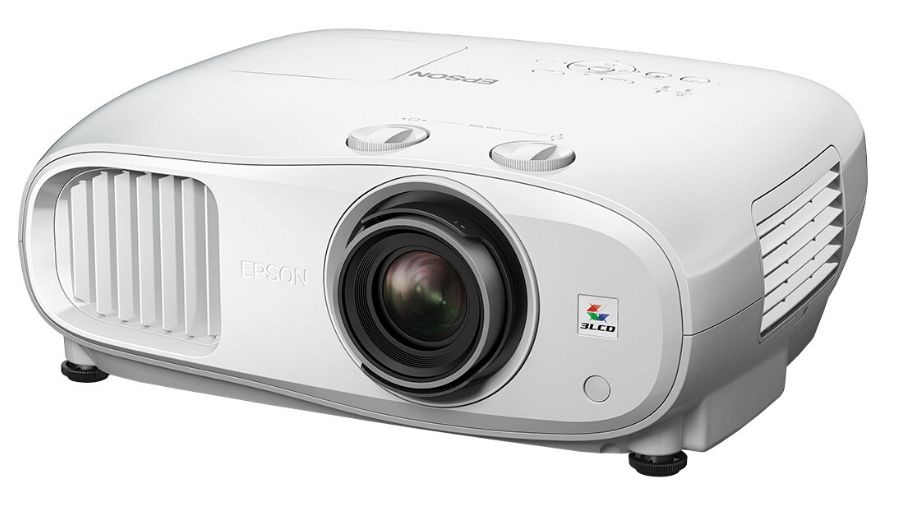
How much do Epson projectors cost?
When it comes to bang-for-buck, nothing beats an Epson home cinema projector. The company offers models to suit every pocket, from the entry-level Home Cinema 1060 / EH-TW650 1080p projector at just $649 / £599 to super bright beamers like the EB-FH06 at £699. The cheapest 4K HDR model is the Home Cinema 3200 / EH-TW7000 at $1,499 / £1,199, while at the top of the home cinema line-up is the Pro Cinema 6050UB / EH-TW9400, which offers a complete package for $3,999 / £2,549 / AU$4,499.
Epson projector reviews
Of course, you can only learn so much from a projector’s price and specifications, and what’s more important is how it actually performs, and crucially what does TechRadar make of Epson's latest models?
We've reviewed Epson home cinema projectors in a number of price ranges – and you can check out our full thoughts with the links below:
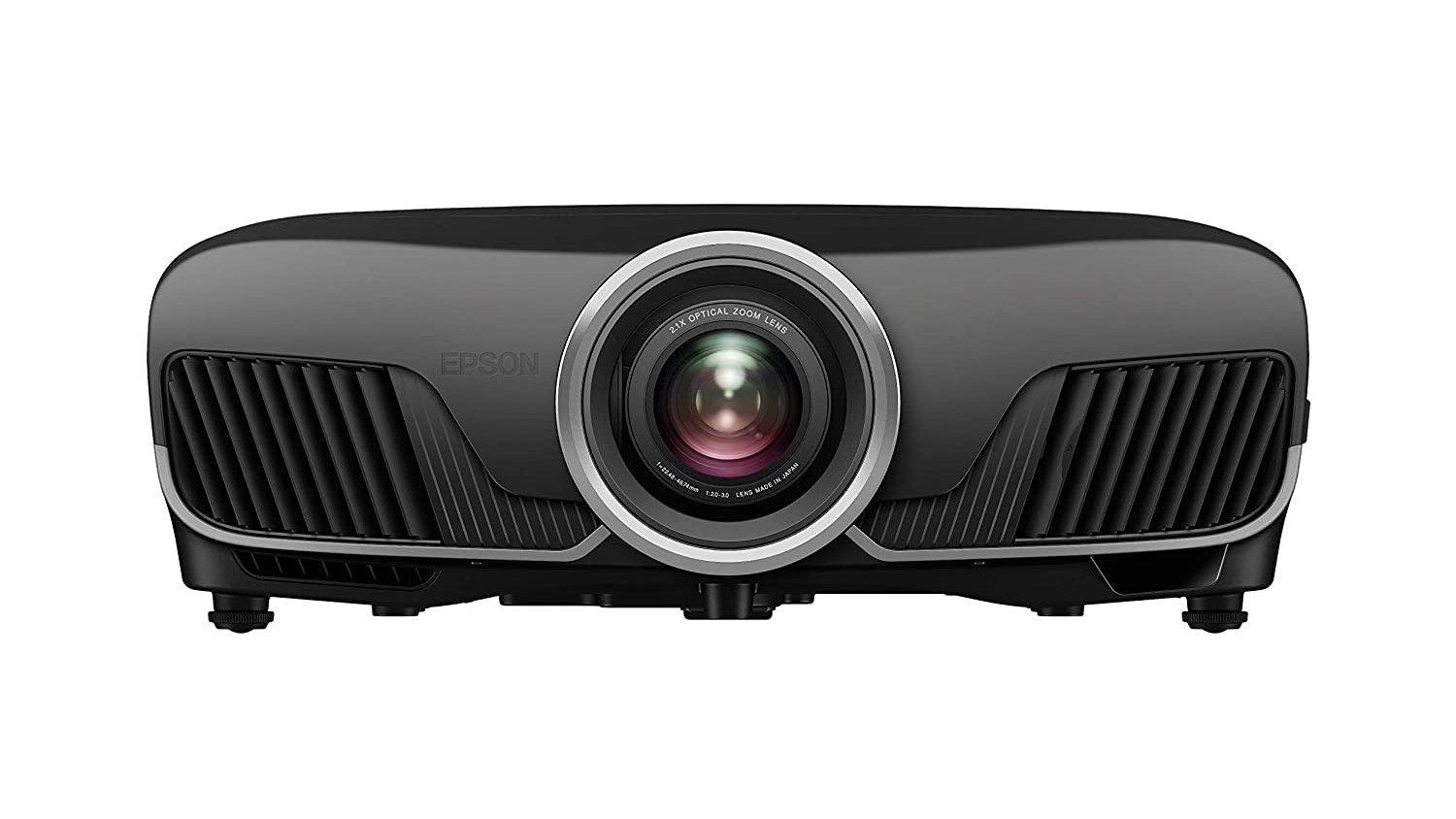
Epson Pro Cinema 6050UB (EH-TW9400)
This superb home cinema projector delivers a winning combination of performance and high-end specs. While not technically 4K, it produces bright, detailed and vivid HDR images, is keenly priced, and its features put models costing twice as much to shame.
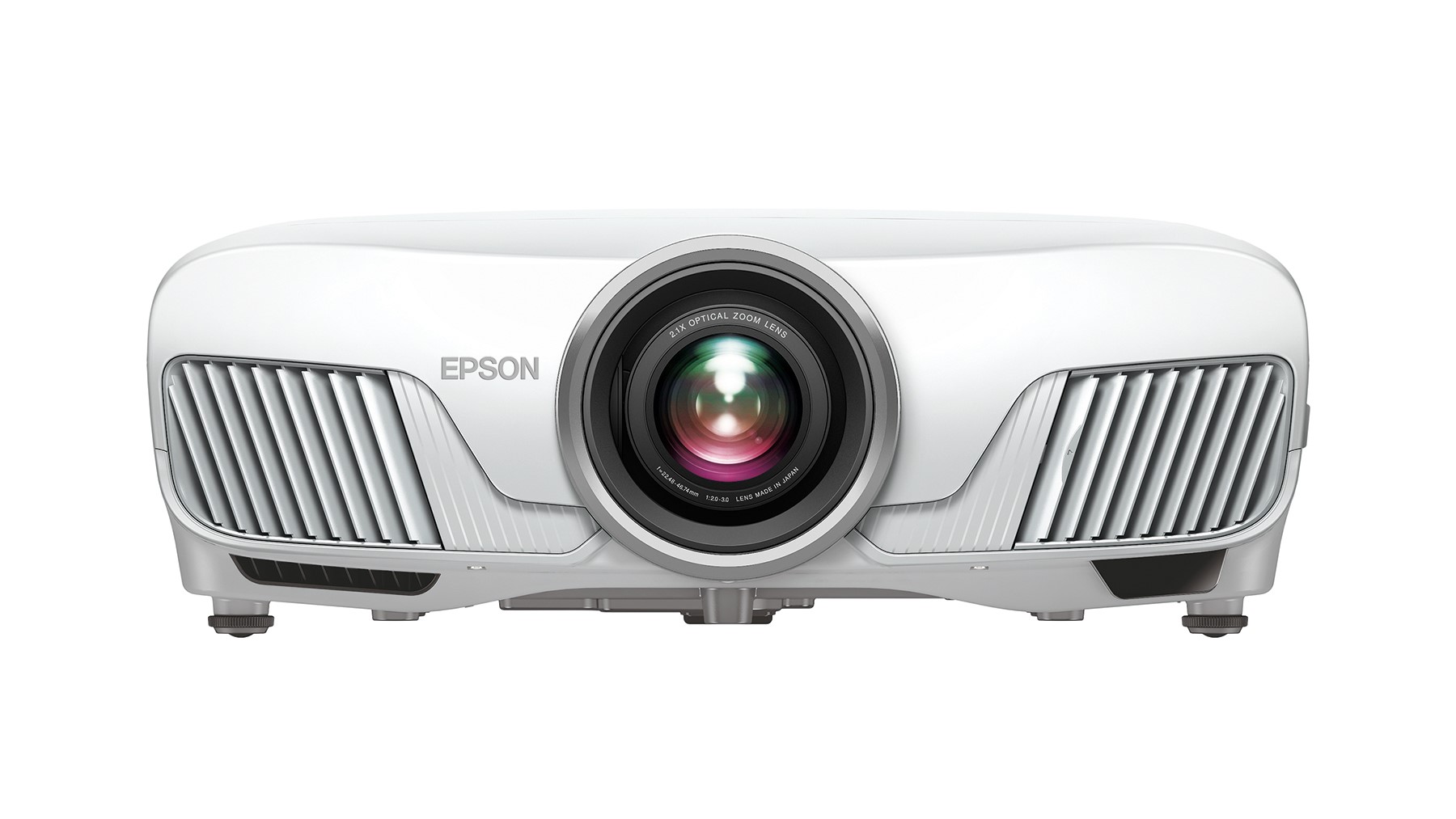
Epson Home Cinema 4010 (EH-TW7400)
This adept projector may not be native 4K but it delivers HDR action that’s clear, contrasty and colossal. It doesn’t have as many bells and whistles as the TW9400, but a combination of must-have features and cinematic imagery is hard to argue with.
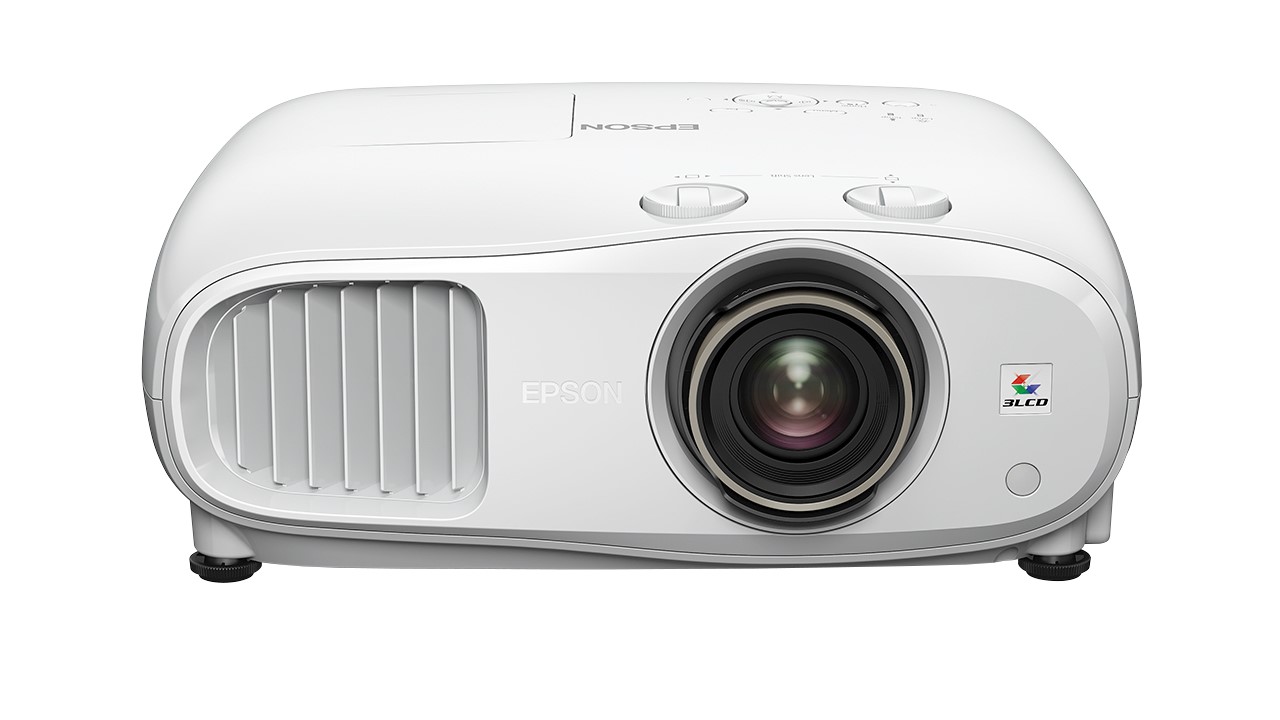
Epson Home Cinema 3800 (EH-TW7100)
While not native 4K, this bright and breezy HDR model still manages detailed, contrasty and colourful big screen images. It’s quiet in operation, and sports built-in speakers and Bluetooth, making it ideal for most living rooms.

Epson Home Cinema 3200 (EH-TW7000)
If you’re building a home cinema on a budget, you can’t go wrong with this big screen beamer. It’s the most affordable way to get 4K and HDR, is bright enough to handle ambient light, and classy upscaling even makes standard definition watchable.

Epson Pro Cinema 6050UB (EH-TW94000)
This superb home cinema projector delivers a winning combination of performance and high-end specs. While not technically 4K, it produces bright, detailed and vivid HDR images, is keenly priced, and its features put models costing twice as much to shame.

Epson Pro Cinema 6050UB (EH-TW94000)
This superb home cinema projector delivers a winning combination of performance and high-end specs. While not technically 4K, it produces bright, detailed and vivid HDR images, is keenly priced, and its features put models costing twice as much to shame.
from TechRadar - All the latest technology news https://ift.tt/3kbNOJu


